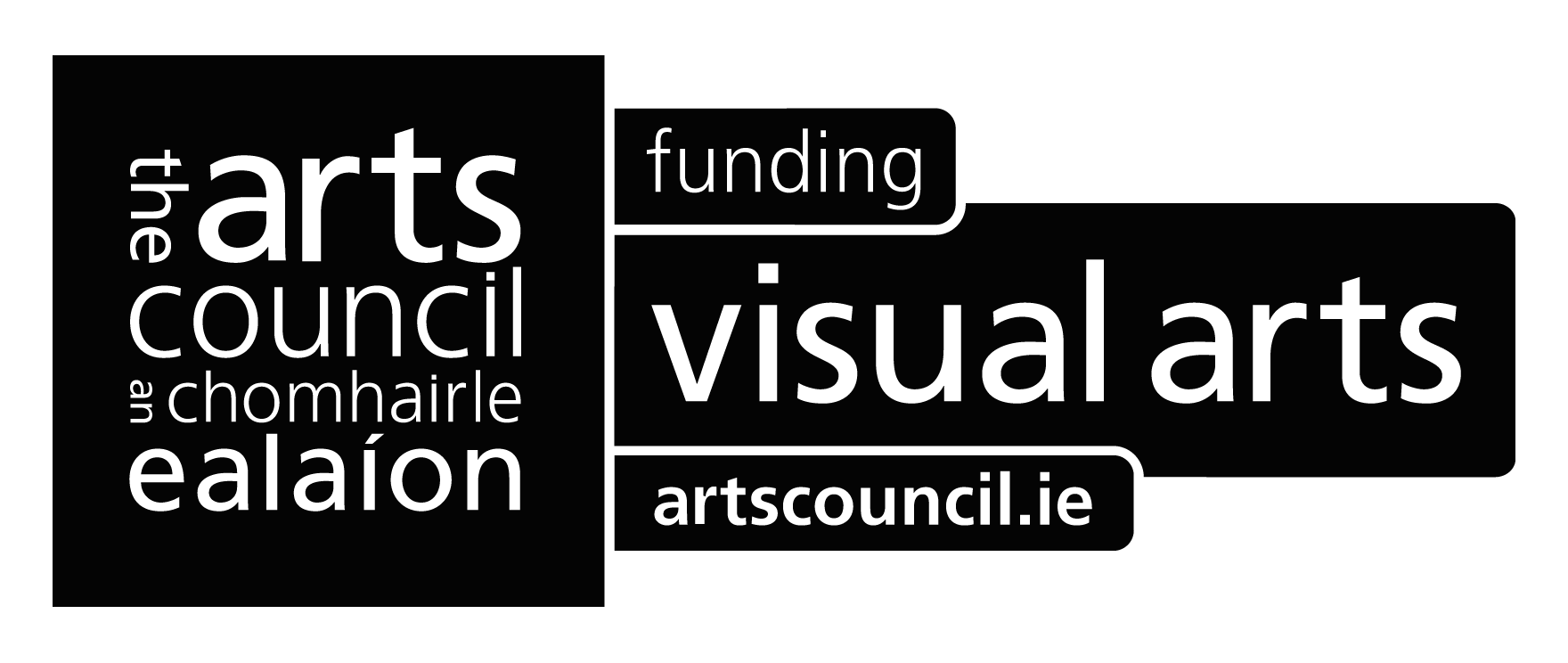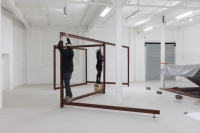Black Mountain
Catalyst Arts
Belfast NI
2nd November – 14th December 2017

photograph by Edel O'Reilly
Cecilia Borettaz | Lucrezia Calabrò Visconti | Andreas Kindler Von Knobloch | Hamish MacPherson
Screening programme: Redmond Entwistle | Adriana Monti
Black Mountain was a six-week project that used the gallery space as a platform to bring together artists, researchers, curators and the general public.
The title refers to Black Mountain College, one of the most well known experimental art schools of post-war America, based in a remote area of North Carolina. What made Black Mountain unique was the teachers’ and students’ approach to creative production, often involving collective making and encouraging overlaps between disciplines including dance, architecture, painting, theatre and music.
The faculty of professors were all highly regarded practitioners in the fields of art, music and architecture such as Josef Albers, Buckminster Fuller and John Cage among others. They shared a strong, common interest in the processes of experimentation, considered in its broader meaning of both empirical scientific method and ‘experience’ which involves knowledge and skills.
Those aspects of Black Mountain’s legacy seems to be reflected in the contemporary self-organized (free!) schools and alternative education models in contemporary art, where utopian structures and radical ideas have been tested and reframed through the experience and experimentation of the artists, students and researchers involved.
In this framework, is it possible to turn a gallery space into a living, metamorphic exhibition that allows artistic processes to be visible and open to changes and engagement? What can we learn from a collective experience of sharing knowledge? In our current environment of instability, inequality and misrecognition of the role of the arts, education and critical thinking – this project aims to be a starting point for a further reflection about the importance of artists initiatives and their impact in the local community.
Overturning the notion of the traditional exhibition, invited collaborators will work in Catalyst Arts using this period as a micro-residency, developing site-specific commissions that will generate a series of publicly engaged workshops, talks and screenings.
Andreas Kindler Von Knobloch will be the first to take residency in the space. Andreas is a Dublin-based artist whose practice embraces collectivity and participation through the creation of structures, objects and spaces that question material and social relations. ‘We Build a Framework’ is a new project developed for Black Mountain. Drawing inspiration from steel framework construction – a contemporary system of building that allows for maximum internal flexibility and open space – Andreas seeks to find parallels between the organisational structure of Catalyst and architectural support systems. Though a public, hands-on-event Andreas will explain and demonstrate with the participants the working principles of the structure and its potentials combinations.
Hamish MacPherson is a London-based artist who uses ideas and methods from choreography and dance to think about politics. He makes workshops, non-digital games, performances, writings, images and other things in dance, visual arts, academic and community contexts. While in Catalyst, he will lead ‘In which we prepare for…’, a series of workshops focused on ‘prepping’ – the process of preparing for an unknown, imminent future.
Cecilia Borettaz is an artist based in Brussel working with painting, printmaking, installation and storytelling. She will use the gallery space as her studio for one week, where she will experiment with new materials and techniques for her ongoing project ‘Dissolution of Abstraction’. The studio is meant to be a place of exchange for the audience, who are invited to take part in the artistic process. During her micro-residency in Catalyst, Cecilia would lead an artist talk about her practice, where she will present ‘Perhaps by fate, perhaps by choice’, her theoretical research on a personal family archive.
Lucrezia Calabrò Visconti is the final contributor in Black Mountain. Lucrezia is an independent curator and co-founder of the research-driven, non-profit space CLOG, based in Turin, Italy. Her current focus of research is the recent overflow of alternative education systems in visual arts, questioning its relevance and meaning in the contemporary art context. Through a series of public discussions, screenings and collective readings Lucrezia will deepen and expand the themes of attention, anarchist epistemology, metanoia, speculative poetics, and fugitive studies.
The last event in the exhibition’s public programme is a screening showcasing artists’ moving image works about specific educational experiments, such as 150 Hours Programme (Italy) and the first years of CalArts (Los Angeles, USA). ‘Scuola Senza Fine’ (1983) by Adriana Monti and ‘Walk-Through’ (2012) by Redmond Entwistle, which spotlight how current pedagogical models and their relationship to new forms of social, political and economic environments have emerged since the 1970s.
This project is kindly supported by Arts Council of Northern Ireland.
Photographs by Lee Welch








